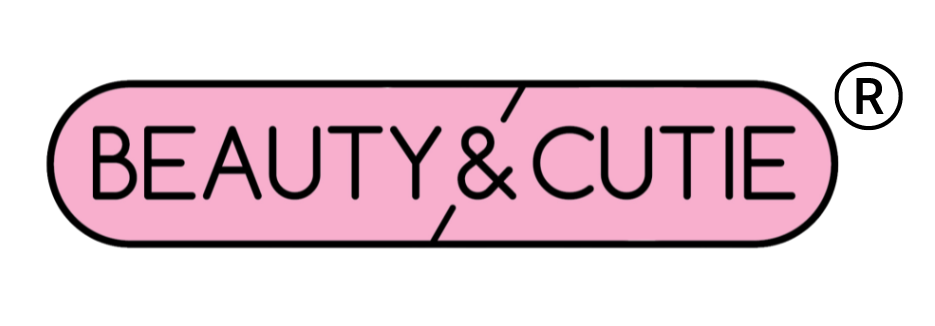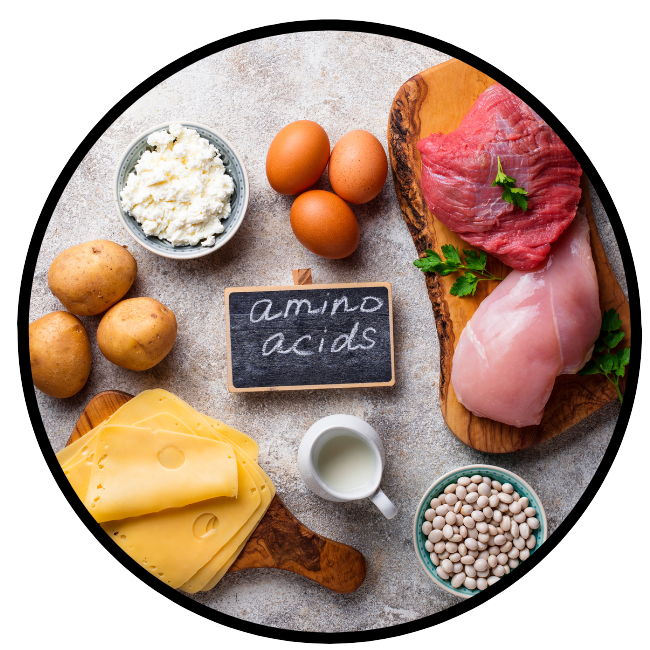
WHAT IS L-LYSINE?
Lysine is an essential amino acid1 that is required for making proteins. Our bodies cannot produce it by themselves, so we must obtain it through diet or supplementation2. Lysine is essential for our growth and the synthesis of the compound known as carnitine3 a nutrient used to convert fatty acids into energy4 and to help lower cholesterol5.
Dietary sources rich in lysine include:
- Eggs
- Red meat, pork and poultry
- Fish (especially cod and sardines)
- Cheese (in particular parmesan)
- Spirulina
- Fenugreek seeds
Though dietary lysine deficiencies are rare in developed countries, vegetarians and athletes may be at risk. Signs and symptoms of a lysine deficiency include5:
- Fatigue
- Nausea
- Dizziness
- Anorexia
- Irritability
- Anemia
- Reproductive disorders
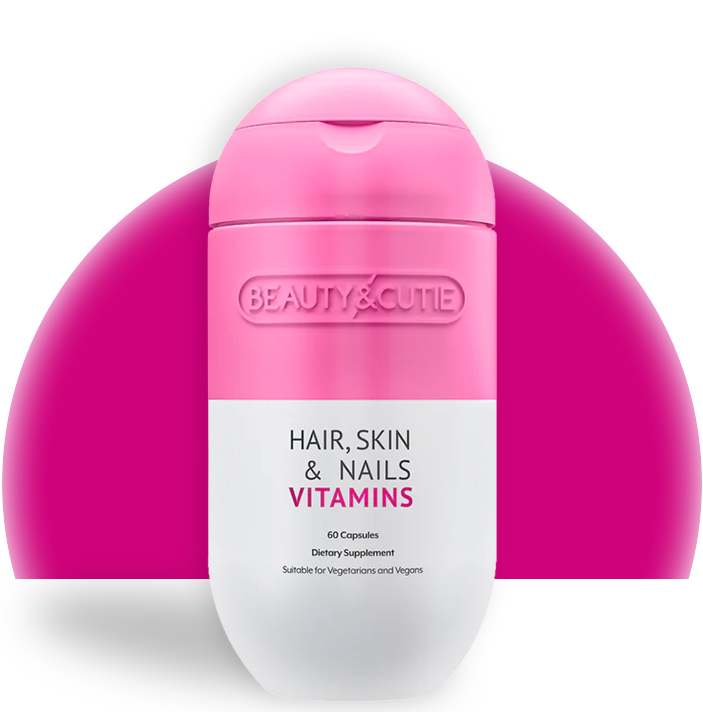
Beauty & Cutie
Lysine is critical in the synthesis of collagen, which is a key component of our skin
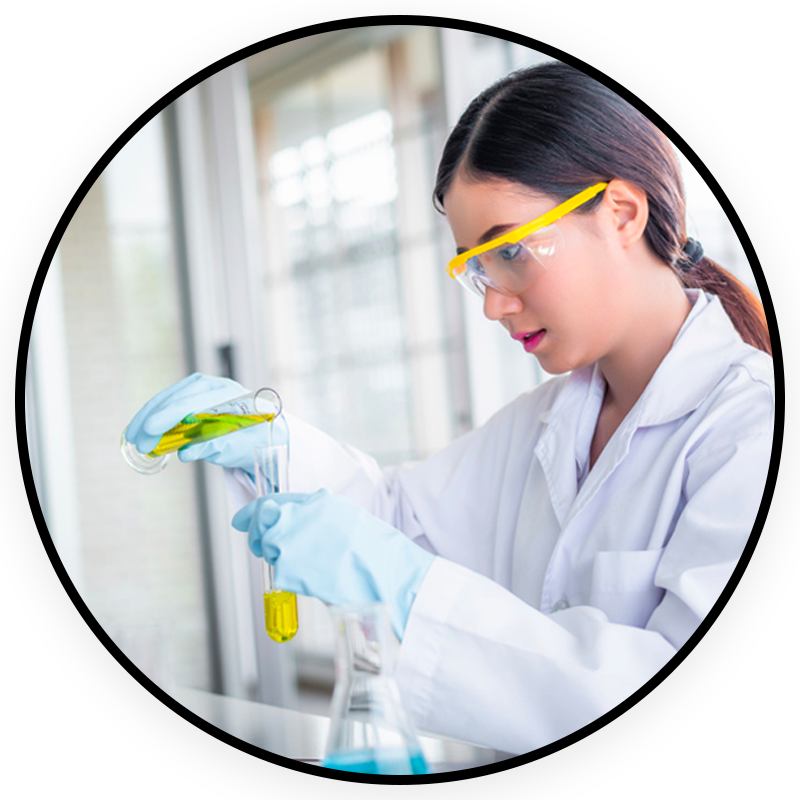
WHY IS L-LYSINE IN MY PRODUCT?
There are several health benefits to maintaining adequate dietary levels of lysine. For example, lysine appears to help body absorb calcium6 and thus may be helpful for prevention or treatment of osteoporosis. There is also evidence that lysine may accelerate the healing of bone fractures7.
There is also ample evidence that lysine can be very helpful in the treatment of various forms of herpes simplex virus8 and cold sores. In a multicentre trial9 to test the effectiveness of lysine for the prevention and treatment of recurrent herpes simplex (HSV), the treatment group was observed to have 2.4 times less HSV infections compared to the placebo group, while symptoms and healing times were also significantly reduced. In a related survey study10, close to 90% of the ~1500 patients surveyed who used lysine supplementation to treat cold sores, canker sores, and genital herpes believed that lysine was an effective treatment. In a recent review of all the various trials11, the evidence points to the importance of dose on the effectiveness of the treatment.
Lysine also plays a critical role in the synthesis of collagen by acting as a cross-linker for the collagen molecule, a substance important for bones and connective tissues including skin, tendons, and cartilage. Alterations in the cross-linking may in fact be connected to diseases of the bone12 such as osteoporosis.
Lysine has also been shown to have beneficial effects on mental health13, most notably anxiety. By measuring factors associated with stress and anxiety in a community known to eat predominantly a grain-based diet poor in natural lysine, supplementation with lysine showed significant decreases in those factors. This particular study was an extension of previous works showing the detrimental effects of lysine deficiency on anxiety14 in rats, and the subsequent improvement shown15 by rats upon lysine supplementation, including the including the reduction of stress related intestinal disorders.16 A follow-up study on humans confirmed this result.17
Finally, the last benefit of lysine was initially proposed18 by double Nobel Laureate, Linus Pauling (1962 Peace Prize for his efforts against nuclear testing, 1954 Chemistry Prize for his research into the nature of the chemical bond). His hypothesis was that lysine inhibits plaque buildup on arterial walls thereby reducing blood pressure and hypertension. Pauling published 3 case studies but more recently a randomized double blind control study was performed that indeed demonstrated the beneficial effects of lysine on reducing blood pressure19 in those that are naturally deficient in lysine.
WHAT IS THE ROLE OF L-LYSINE FOR HAIR, SKIN AND NAILS?
As we have already mentioned above, lysine is critical in the synthesis of collagen20 which is a key component of your skin. As we age, the collagen in our skin will begin to fragment21 - the source of age-related appearances of skin such as wrinkles and sagging22. This phenomenon is exacerbated by the effects of the sun’s ultraviolet radiation23 and taken together underscores the importance of collagen production to the appearance of healthy skin.
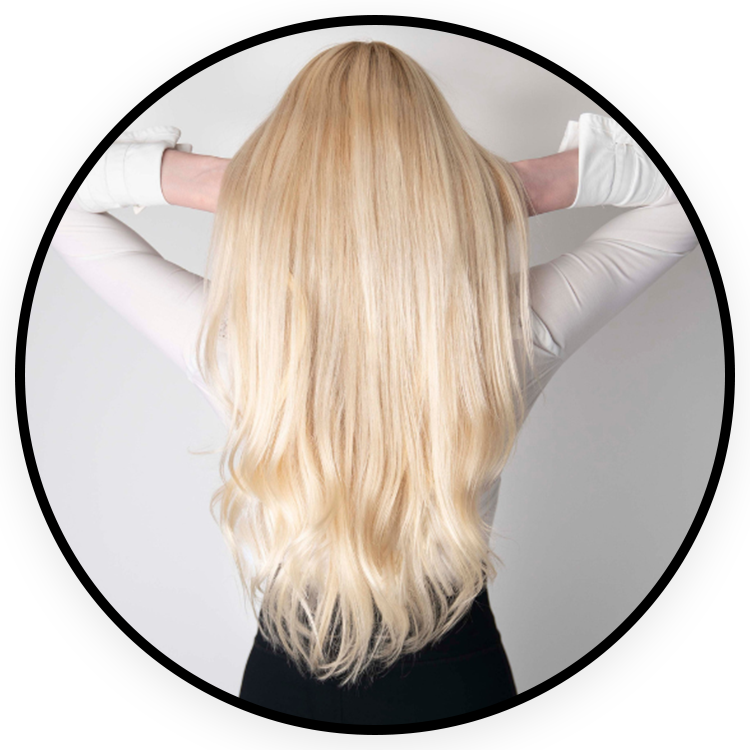
Excessive hair loss and reduced hair volume in women has been attributed to deficiencies in iron and lysine24. When too little lysine is in our diet, the body will make up the shortfall by breaking down our muscle tissue and prioritizing this for essential functions, leaving scalp hair in a vulnerable state.25These effects are reversible with supplementation, though recovery could take up to several months.
There is no direct definitive study on the effect of lysine on the health, strength and appearance of nails (to the best of our knowledge). An interesting report26 does elicit the benefit of collagen peptides on nail health, noting that when taken orally, these peptides are absorbed as small collagen peptides and free amino acids. This resulted in increased nail growth and improved brittle nails associated with a decreased frequency of broken nails. However, it remains to be seen whether lysine, keeping in mind it’s importance in the formation of collagen, will have a similar effect.
In summary, the chief role of lysine in the health of hair, skin, and nails relates to its importance in collagen synthesis, which is so vital to healthy skin (where most of the body’s collagen is located). Other benefits include helping the prevention of hair loss, in particular to people who subscribe to potentially lysine-deficient diets (e.g., vegetarians, vegans).
References:
- https://pubchem.ncbi.nlm.nih.gov/compound/Lysine
- https://pubmed.ncbi.nlm.nih.gov/33000162/
- https://www.mountsinai.org/health-library/supplement/lysine
- https://ods.od.nih.gov/factsheets/Carnitine-HealthProfessional/
- https://pubmed.ncbi.nlm.nih.gov/19056606/
- https://pubmed.ncbi.nlm.nih.gov/1486246/
- https://www.ncbi.nlm.nih.gov/pmc/articles/PMC2762560/
- https://pubmed.ncbi.nlm.nih.gov/640102/
- https://pubmed.ncbi.nlm.nih.gov/3115841/
- https://pubmed.ncbi.nlm.nih.gov/6423612/
- https://pubmed.ncbi.nlm.nih.gov/30881246/
- https://pubmed.ncbi.nlm.nih.gov/9514209/
- https://pubmed.ncbi.nlm.nih.gov/15159538/
- https://pubmed.ncbi.nlm.nih.gov/12468617/
- https://pubmed.ncbi.nlm.nih.gov/12722988/
- https://www.ncbi.nlm.nih.gov/pmc/articles/PMC307574/
- https://pubmed.ncbi.nlm.nih.gov/17510493/
- http://orthomolecular.org/library/jom/1991/pdf/1991-v06n03&04-p144.pdf
- https://bmcnutr.biomedcentral.com/articles/10.1186/s40795-017-0187-6
- https://www.ncbi.nlm.nih.gov/pmc/articles/PMC3499978/
- https://pubmed.ncbi.nlm.nih.gov/18490597/
- https://pubmed.ncbi.nlm.nih.gov/3521988/
- https://pubmed.ncbi.nlm.nih.gov/23466932/
- https://pubmed.ncbi.nlm.nih.gov/18498491/
- Nutritional factors and hair loss D.R Rushton Clinical and experimenting Dermatology
- https://pubmed.ncbi.nlm.nih.gov/28786550/
